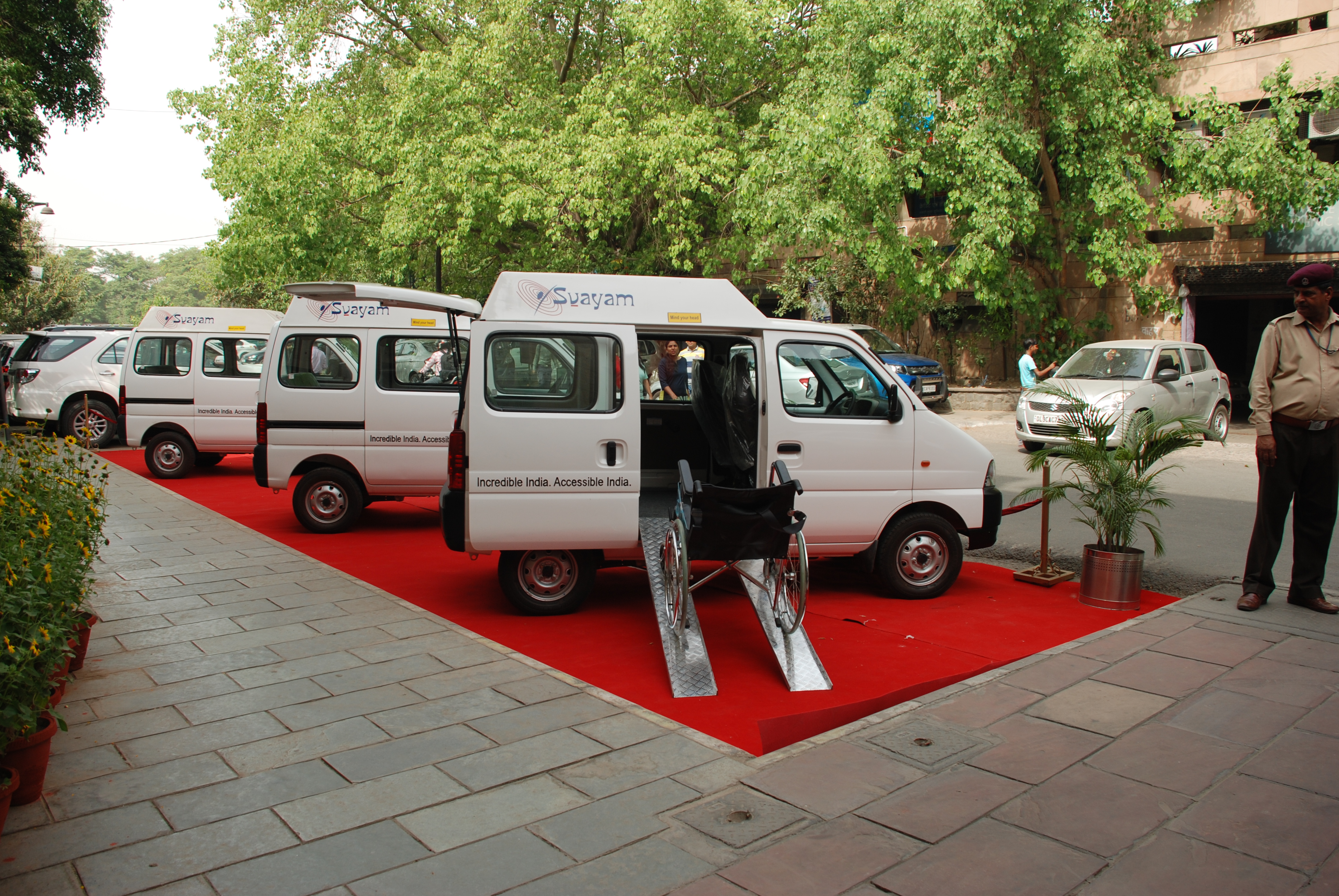
As part of its ongoing campaign to promote accessible transportation for people with reduced mobility, Svayam, donated a total of 10 wheelchair accessible vehicles to needy stakeholders.
Ms. Sminu Jindal, Founder-Chairperson, Svayam, and MD, Jindal SAW Limited, handed over the keys to the recipients in a cheerful atmosphere, and hoped that this would help children as well as adults with reduced mobility to travel with ease and dignity.
Ms. Jindal said, “We are grateful to Hon’ble Prime Minister Shri Narendra Modi Ji for giving a big boost to accessibility movement in India by launching Accessible India Campaign. We at Svayam enthusiastically promote Govt of India’s mission to make transportation accessible for all. It is because we strongly feel that an accessible transport system is the single most crucial link which can make the entire society inclusive and help provide a chance for equal opportunity to all; regardless of their physical abilities.”
“Accessible transport helps people to feel empowered as they can make their own life choices with freedom of movement. Accessible school transportation is also equally important to enable children with disabilities to attend schools for their all-round development”, she added.
These modified vehicles were retrofitted to ensure easy and dignified commutes for people with reduced mobility. As part of the planning, the vans had their ceilings raised for higher headroom, a fold-able ramp for easy entry and exit via wheelchairs, wheelchair restraint mechanism, among many other necessary modifications. Each van can accommodate three persons apart from the driver (including one wheelchair user while being seating on the manual wheelchair).
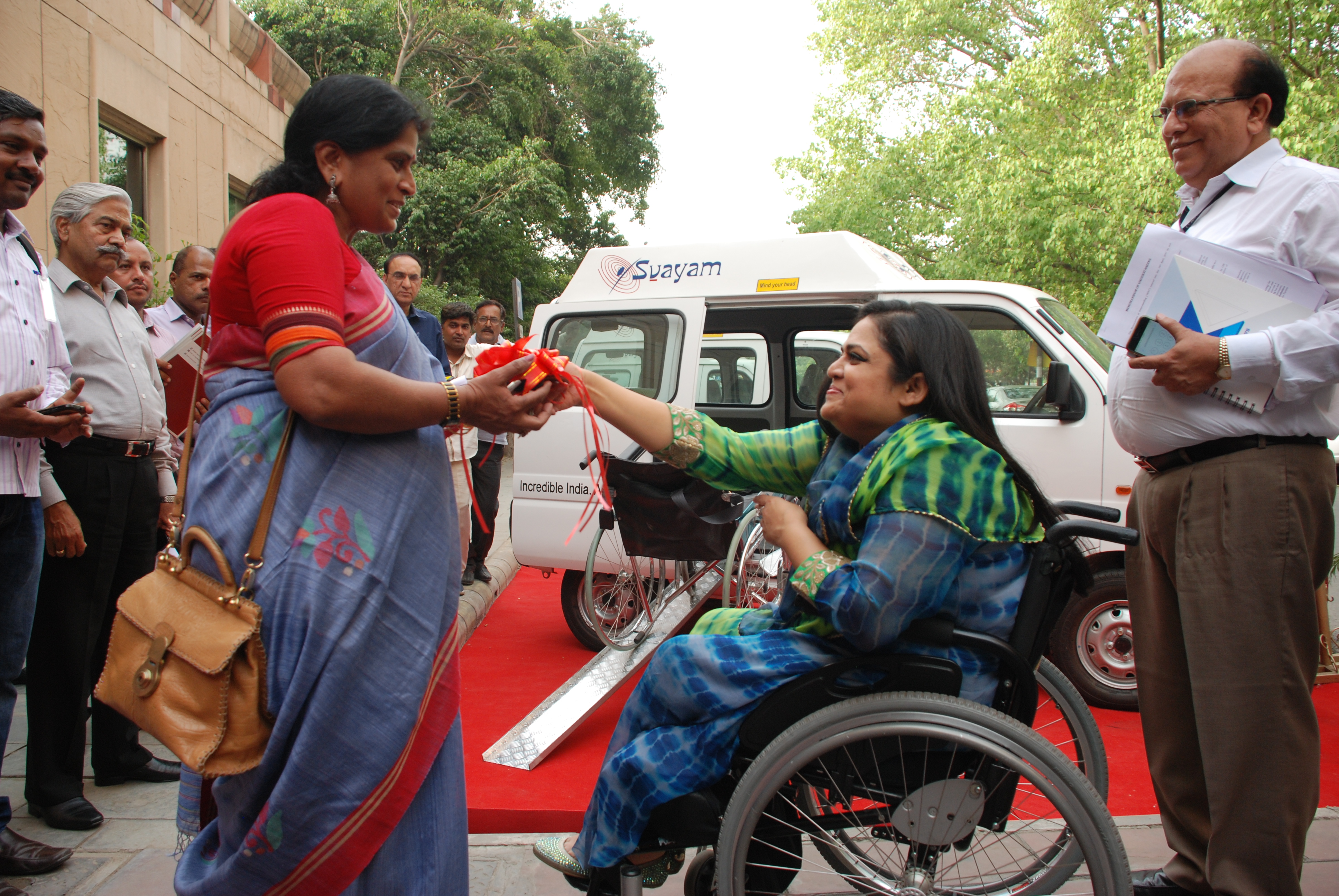
In an earlier held similar event on 21 April 2017, a total of three vans were given to Mobility India – a Bangaluru based NGO, for use in Bengaluru and North East India, while one van was given to EzyMov for use in Mumbai.
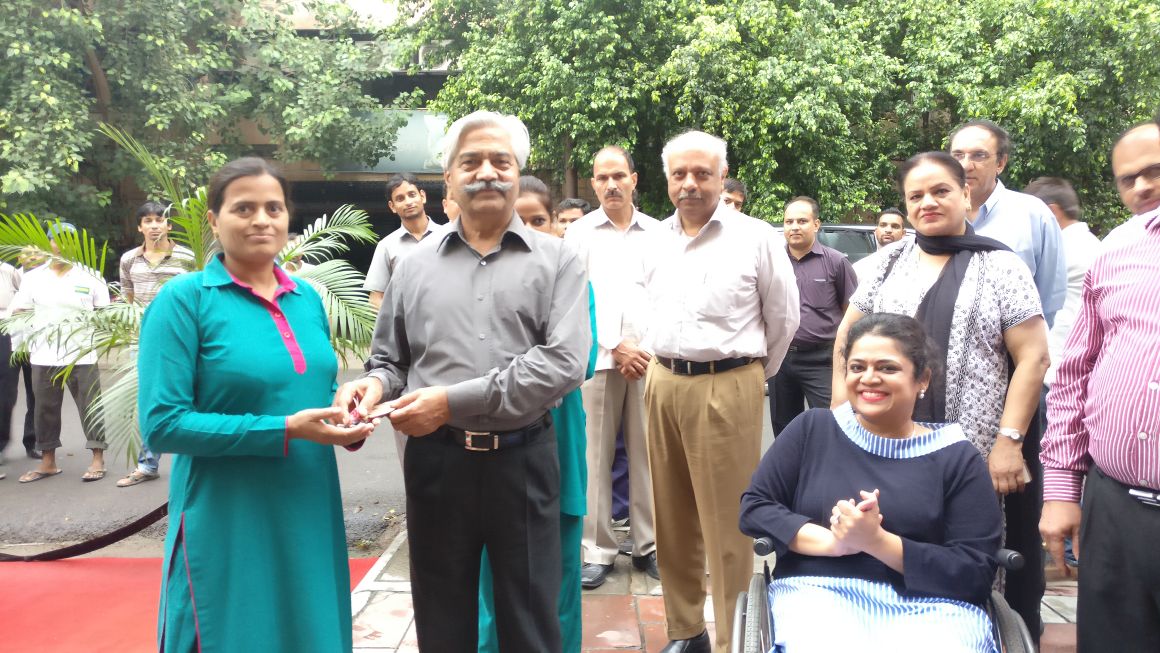
Two such vans were given to the Azad Foundation, and one van to Mr. Samuel Mani, at a special ceremony held at the Jindal Centre, New Delhi, on 23rd August 2017.
“We are adding wings to women empowerment and entrepreneurship, as two vans are being given to women-run organisation, Azad Foundation, which runs ‘Sakha Cabs for Women by Women Campaign’, and ‘Women-on Wheels’ program. They offer 24X7 taxi services to women passengers, thus helping the cause of women safety which is a big issue.” said Ms. Jindal.
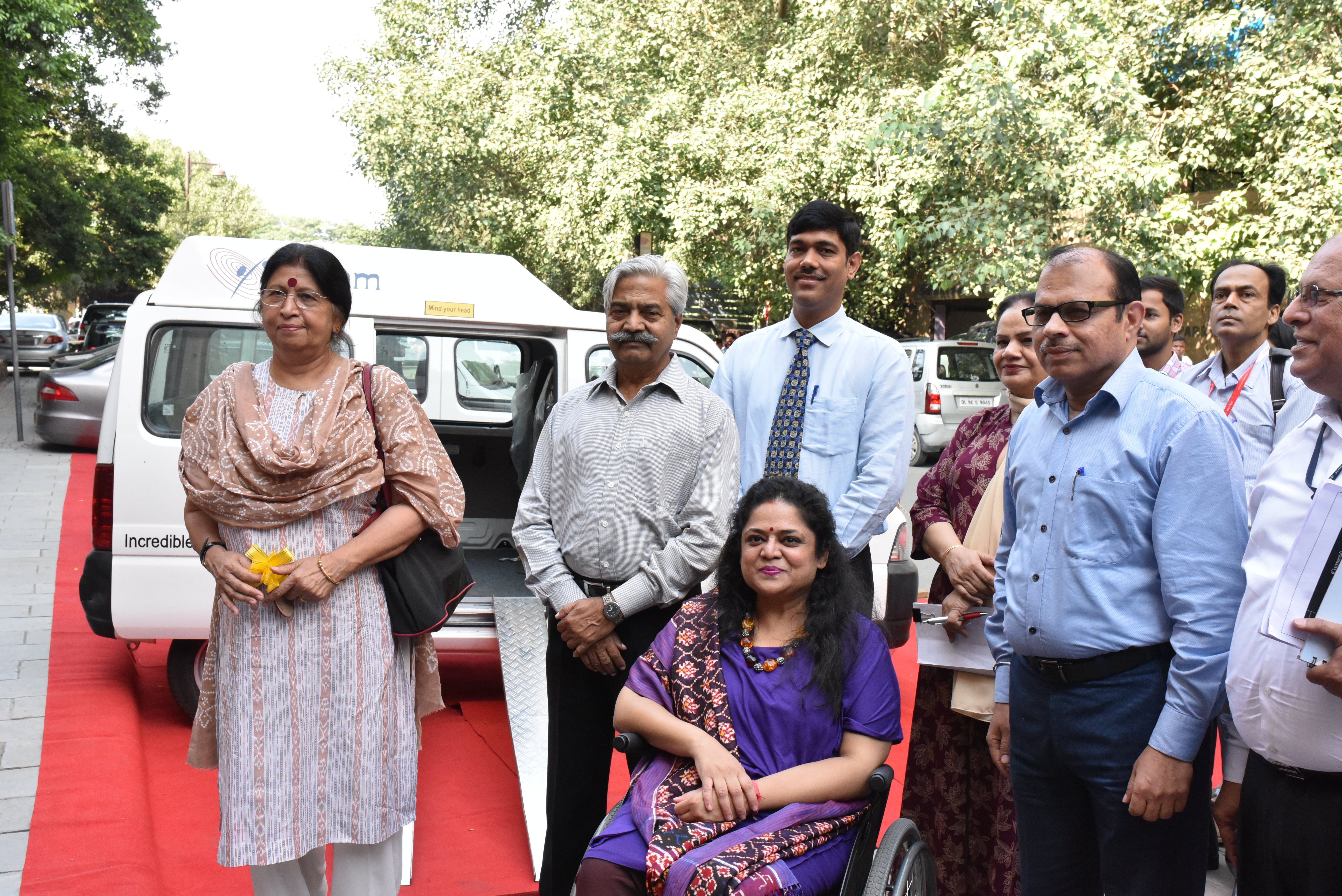
Three vans were given away to New Delhi based non-profit organizations working with persons with disabilities on 29 September 2017. The recipients were Muskaan PAWCMH (Muskaan Parents Association for the Welfare of Children with Mental Handicap), ASTHA and Family of Disabled.
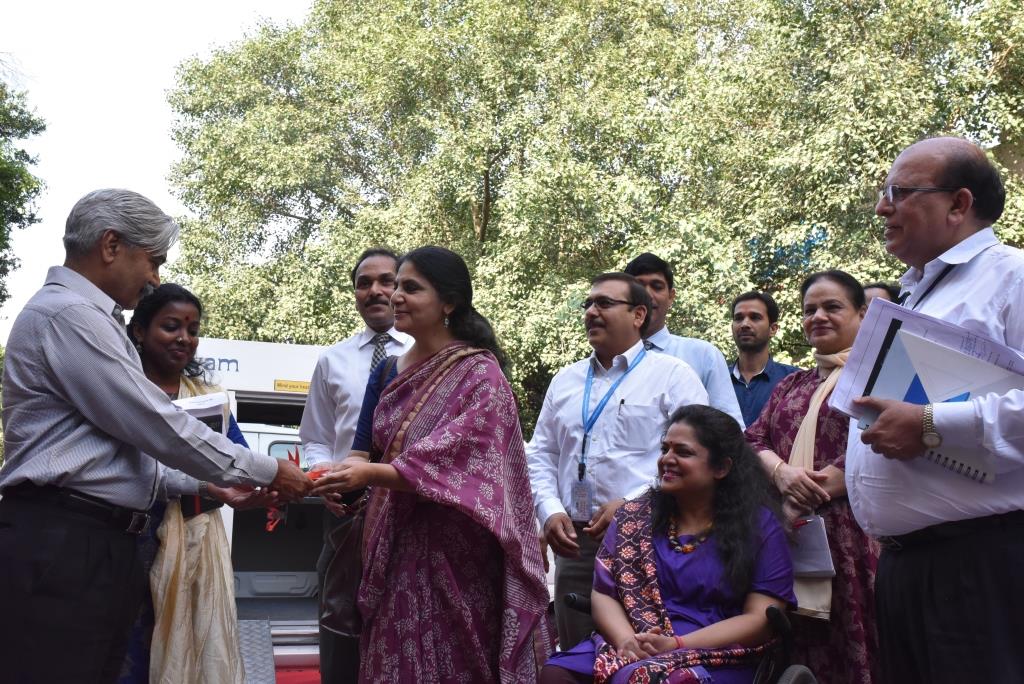
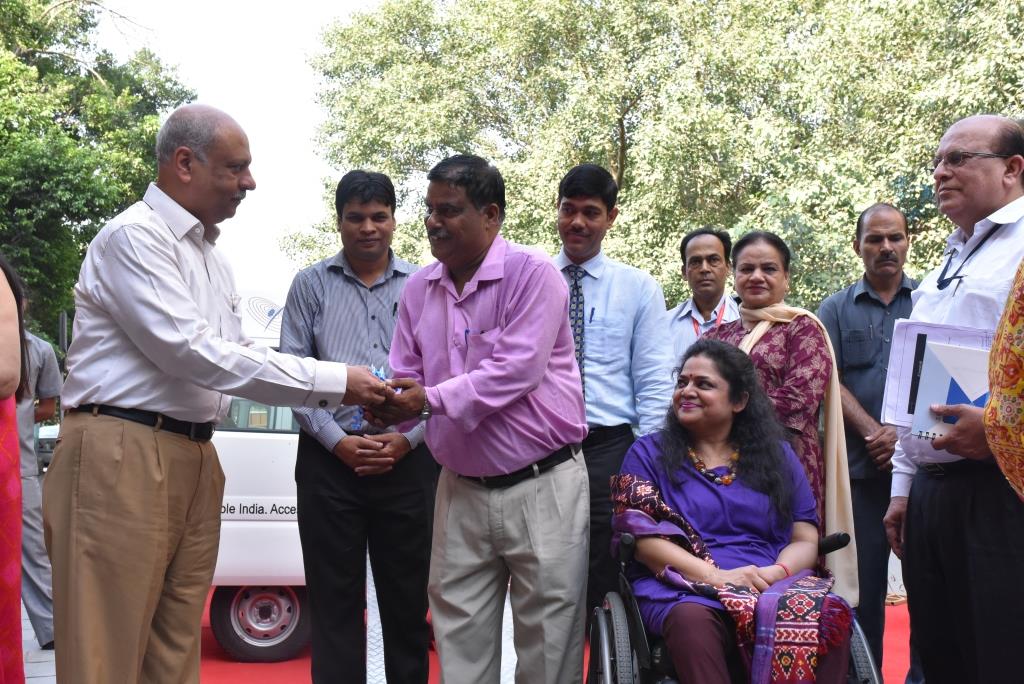
Svayam believes that accessibility is not limited to only person with disabilities, it is the need of everyone as it makes our lives much easier; hence Svayam has been using the hashtag #Accessibility4All in its all social media campaigns.
Currently no manufacturers make wheelchair accessible vehicles and thus a vehicle is first bought and then taken to authorised fabirators/ workshops.
People with disabilities or organisations working with them, often have to bear additional costs to modify vehicles. Hence, by distributing such vehicles, Svayam is also sending the right message about the need of manufacturers coming out with accessible vehicles to meet the growing needs of the seniors & those with reduced mobility.

